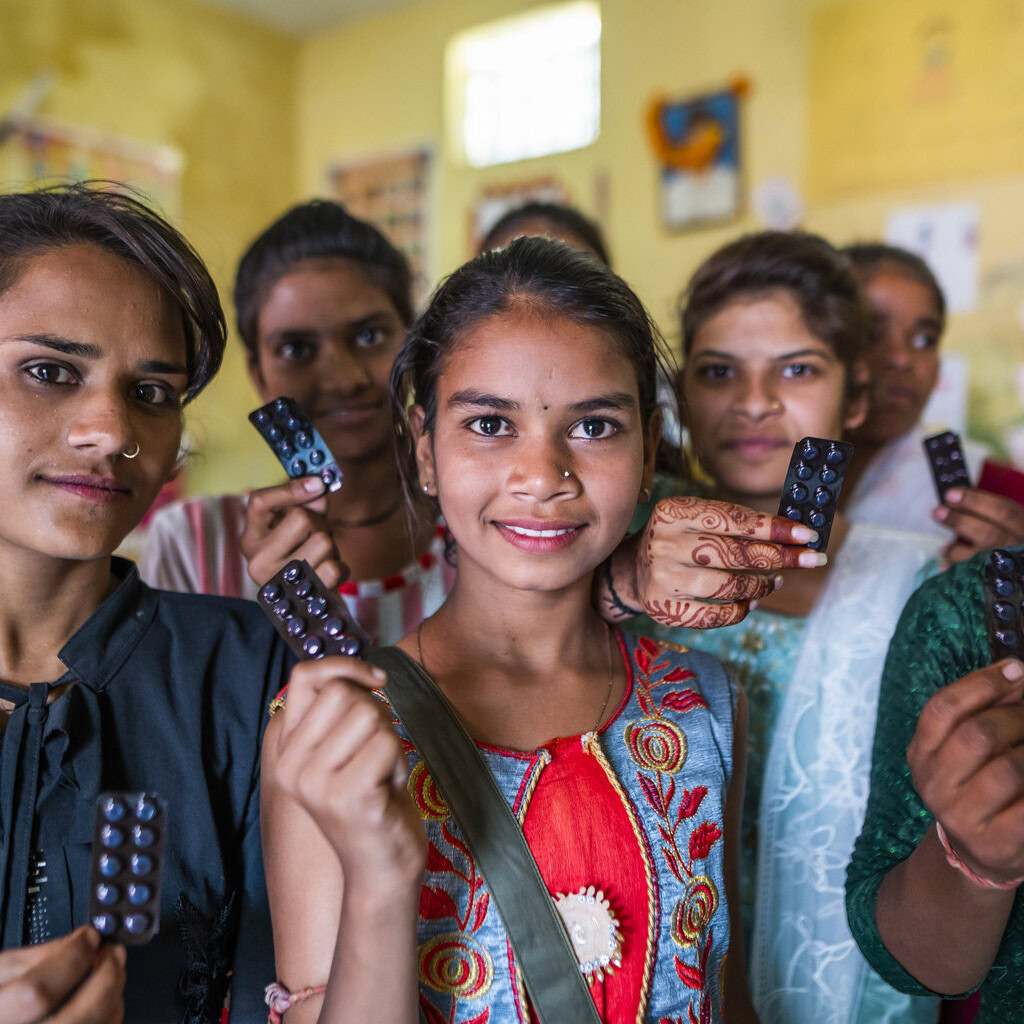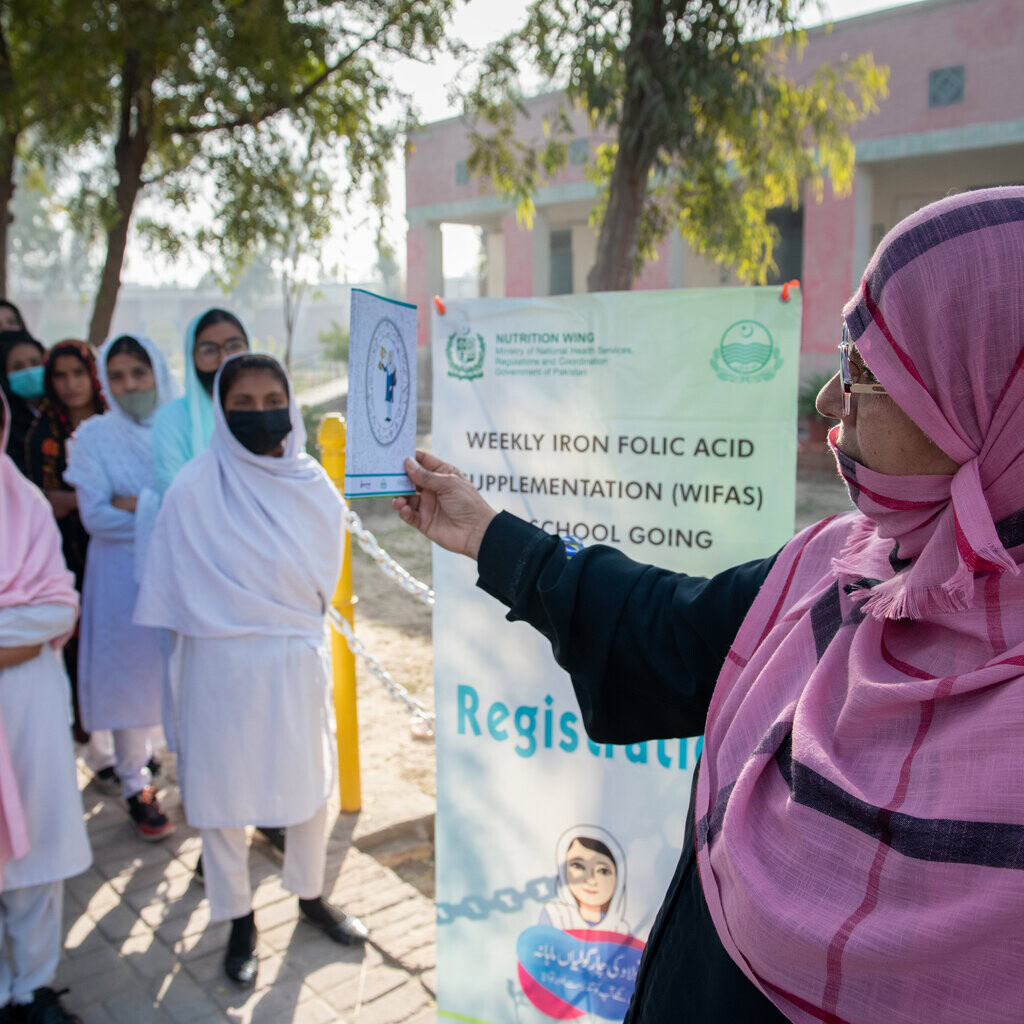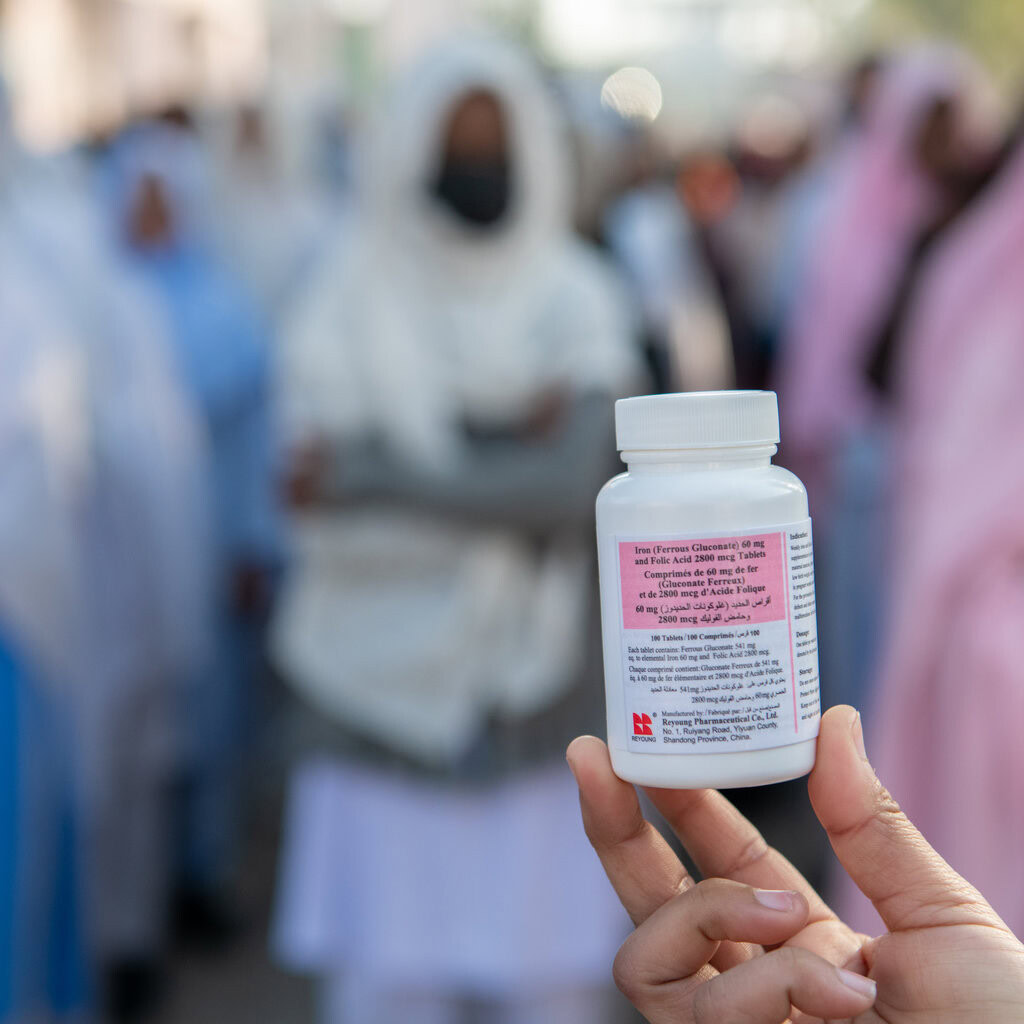Through our adolescent health and nutrition initiatives, we empower adolescent girls and boys with the nutrition and knowledge they need to become better advocates for themselves and to make healthy life decisions. Our efforts help governments strengthen and expand the package of interventions for adolescent nutrition — including menstrual health management, sexual and reproductive health, skill building and overall wellbeing. We are also working to prevent adolescent anaemia through weekly iron and folic acid supplementation (WIFAS): with our support, in 2023 almost 4.5 million adolescent girls received the full scheme of WIFAS across approximately 150,000 schools in eight countries in Africa and Asia.
Under our 2022 memorandum of understanding with the African Union, we continued to provide strategic technical assistance and developed an evidence-based framework to guide continental actions to accelerate progress on adolescent nutrition. The framework, along with a technical overview highlighting the importance of adolescent nutrition, was presented to the regional economic committees and will be shared with the Specialized Technical Committee to help shape the adolescent nutrition component of the next 10-year Africa Regional Nutrition Strategy.
Recognizing that out-of-school adolescent girls are among the hardest to reach and often live in the most vulnerable contexts, we supported Bangladesh’s National Nutrition Services in developing the “Operational Guideline for Out-of-School Adolescent Nutrition Interventions at the Community Level with Linkage to the Health System.” In November 2023, an advocacy meeting reviewed and sought approval for the Guideline, which is now undergoing final reviews before being shared with stakeholders.
In Tanzania, we are implementing the Building Rights for Improved Girl’s Health in Tanzania (BRIGHT) project, a seven-year initiative aimed at building agency in adolescents in the Tabora region to exercise their sexual and reproductive health and nutrition rights through youth-centered, gender-responsive and rights-based approaches. We also provided technical and financial support for the launch of the She’ll Grow Into It advocacy campaign, which calls for prioritizing adolescent nutrition and amplifying adolescent voices across African Union member states.
To enhance WIFAS reporting in Indonesia, we initiated the development of a digital data collection application, using the national District Health Information Software (DHIS2). The app was rolled out to teachers in five schools in the Purwakarta district of West Java province. Insights from the pilot — including challenges, opportunities and recommendations — were shared with the Ministry of Health to inform future deployment.
At the global level, Nutrition International contributed to improvements in the policy landscape and market shaping through the successful submission of WIFAS to the World Health Organization’s (WHO) Model List of Essential Medicines. The inclusion of this new formulation, containing ferrous salt, elemental iron and folic acid, will enable countries to implement policies and programs to accelerate adolescent nutrition, reduce global anaemia and help prevent neural tube defects. Additionally, we are collaborating with partners at the global, regional and national levels to raise the profile of adolescent nutrition and highlight data gaps, ensuring decision makers fully understand the current health and nutrition needs of adolescents.


